10 Foods That Cause Anxiety: What to Avoid For a Calmer Mind
Apr 14, 2025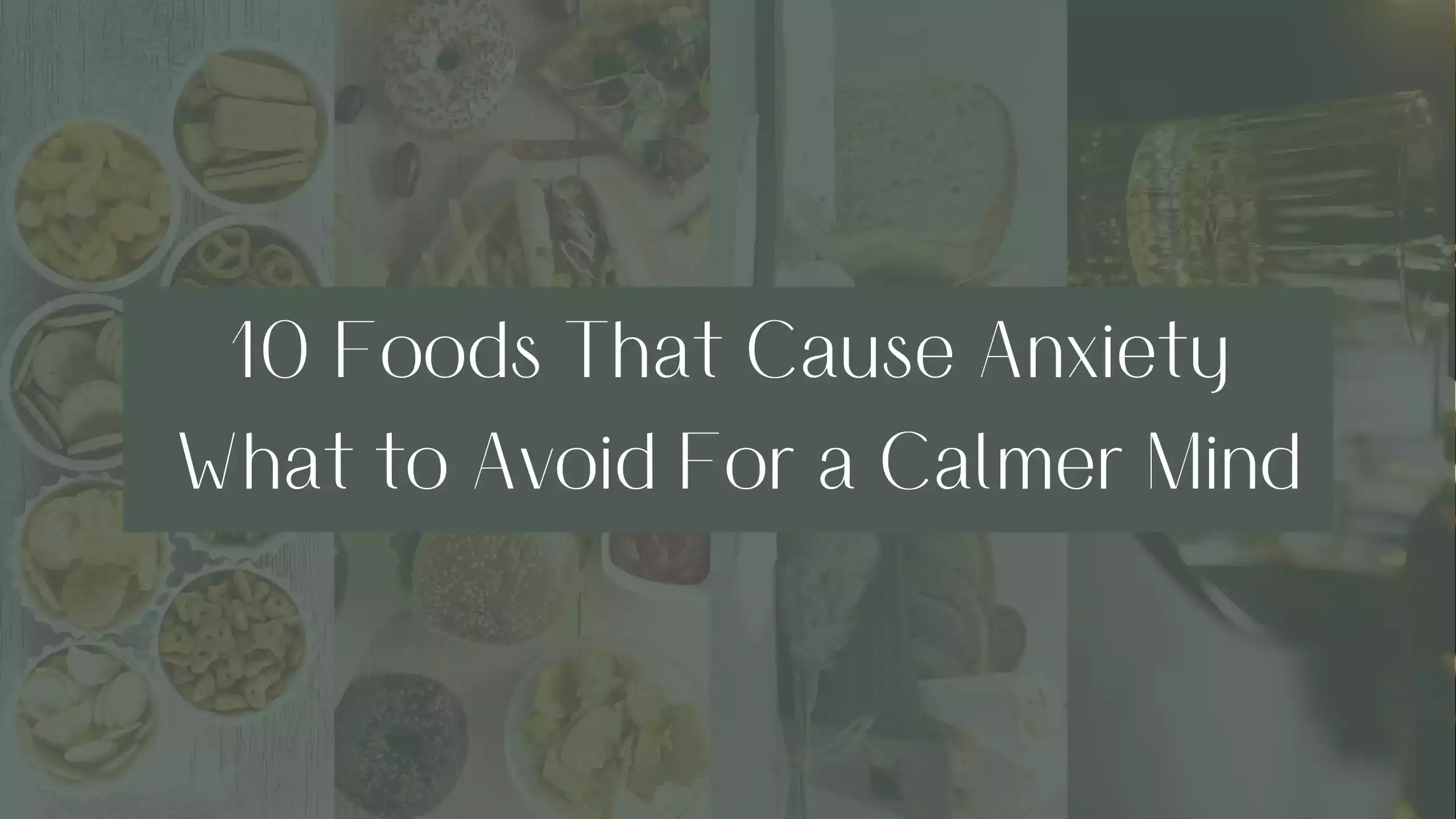
Stress and anxiety have become a daily part of life for many people around the world. In recent surveys, over 40% of adults said they experience high levels of stress and worry every day. Around 31 percent of people now consider stress to be the biggest health issue in their country. Even in the workplace, 41 percent of employees say they feel stressed most of the day. These numbers show how deeply stress is affecting our lives.
While there are many reasons behind anxiety, what you eat plays a bigger role than you might think. Some common foods can quietly increase stress levels, disturb sleep, and make your mood worse without you even realizing it. In this blog, we will talk about 10 foods that may be making your anxiety worse and what you can choose instead for a calmer, more balanced mind.
“Global Perception of Stress: As of August 2024, 31% of adults surveyed globally viewed stress as the most significant health problem in their country, marking the highest percentage in recent years.”
“Daily Stress Experiences: In 2022, approximately 40% of adults worldwide reported experiencing a lot of stress, and 41% experienced significant worry.”
“Employee Stress Levels: A 2024 survey found that 41% of employees globally felt stressed "a lot of the day," indicating a substantial impact on the workforce.”
Understanding Stress, Cortisol, and Inflammation: How Food Plays a Crucial Role
We all experience stress in one form or another, but did you know that the foods we eat can significantly impact our stress levels and overall well-being? Cortisol, often referred to as the "stress hormone," plays a central role in the body's response to stress. When you're under pressure, whether from work, personal life, or even poor diet choices, your body releases cortisol to help manage the situation. While cortisol is necessary for chronic high levels can lead to inflammation, weight gain, and other health problems.
How Inflammation Is Created: The Role of Sugar and Stress-Inducing Foods
Inflammation is your body’s natural response to injury or infection, but when it becomes chronic, it can wreak havoc on your health. One of the key contributors to chronic inflammation is the blood sugar rollercoaster. Eating foods that cause blood sugar spikes—like refined sugars, processed carbohydrates, and foods high in unhealthy fats—can trigger an inflammatory response in the body. These spikes lead to an overproduction of insulin, which, over time, can cause your body to become less responsive to insulin and increase the risk of metabolic conditions like prediabetes.
Certain foods also directly induce stress within the body. These include highly processed or fried foods, alcohol, and foods rich in artificial additives. Such foods can not only lead to blood sugar imbalances but can also activate stress responses in the body, elevating cortisol levels and increasing inflammation.
Another major factor is food intolerance.. While the body’s immune response to food intolerances might not seem as dramatic as a full-blown allergy, it can still cause inflammation and stress. This can manifest as bloating, digestive discomfort, fatigue, and even mood changes, all of which contribute to overall stress levels.
The Effect of Foods on Your Stress and Health
The foods you choose to eat can have a profound impact on your stress levels and inflammatory response. For example, consuming sugary snacks or processed foods might give you a temporary energy boost, but they will ultimately cause a crash in blood sugar, which can trigger a cortisol spike. On the other hand, anti-inflammatory foods like leafy greens, healthy fats (like those found in avocado and olive oil), and high-quality proteins can help regulate your blood sugar and support the body’s natural healing processes.
If you struggle with unexplained fatigue, bloating, skin issues, or even mood swings, it might be a sign that certain foods are stressing your body more than you realize. Many people have food sensitivities or intolerances that can be triggering inflammation and affecting their mental and physical health.
Discover Your Personal Food Stressors with Food Intolerance Testing
Everyone’s body reacts differently to food. Some foods may help you thrive, while others may cause hidden stress or inflammation. That’s where food intolerance testing can help. By identifying your unique food stressors, you can make more informed choices about what to eat, reduce inflammation, and improve your overall well-being.
At Sanna Life, we offer personalized food intolerance testing to pinpoint the foods that might be causing discomfort or stress for you. Whether you're dealing with digestive issues, skin flare-ups, or fatigue, understanding your body’s specific food intolerances can be a game-changer. With this knowledge, we can work together to create a diet plan that supports your body, reduces stress, and helps you feel your best.
Take the first step towards a healthier, stress-free life today by scheduling your food intolerance test with us. Let’s uncover the foods that are holding you back and get you on the path to better health and vitality.
We all feel anxious sometimes. Maybe before an important meeting, during a hard conversation, or when life feels stressful. But here is something surprising, your food might be making it worse. Yes, what you eat can affect how you feel. Some foods quietly increase stress in your body. They can make you feel nervous, tired, or emotionally low without any clear reason. If you often feel anxious and cannot figure out why, your diet might be part of the problem. In this blog, we will explore 10 common foods that can trigger anxiety and simple ways to replace them for a calmer mind.
If you often feel stressed and want to feel calmer, paying attention to your diet can help. Some everyday foods and drinks might be increasing your anxiety without you knowing. In this article, we will look at ten common foods that may be making your stress levels worse and explain how they affect your body and mind.
Here are the 10 foods that cause Anxiety:
- Caffeine
- Sugar-Loaded Snacks
- Alcohol
- Processed Fast Food
- Energy Drinks
- White Bread and Refined Carbs
- Artificial Sweeteners
- Fried Foods
- High-Sodium Foods
- Red Meat
Also Read: Intermittent Fasting Miracle OR Myth?
1. Caffeine
Caffeine is a natural stimulant found in coffee, tea, chocolate, and most energy drinks. It gives a quick energy boost by stimulating your nervous system. But if you already feel stressed or anxious, caffeine can make it worse. It increases your heart rate, makes your hands shaky, and can even cause that jittery or nervous feeling some people get. This is your body reacting to being overstimulated. While many people think caffeine helps them stay focused or awake, too much of it can disturb your sleep, affect your mood, and trigger anxiety. If you often feel restless or uneasy, try to notice how much caffeine you are having each day. Cutting down slowly and switching to herbal teas or decaf options can help you stay calm without feeling wired.

2. Sugar-Loaded Snacks
Cookies, candies, and pastries may taste good, but they are not helpful for your brain or mood. When you eat too much sugar, your blood sugar rises very quickly. After that, it drops just as fast. This sudden rise and fall can make you feel tired, irritated, or anxious. Your body struggles to stay balanced. Over time, this pattern can increase feelings of stress and restlessness. A better option is to choose snacks like nuts or fruits. They give you steady energy and keep your mood more stable without the sudden crash.
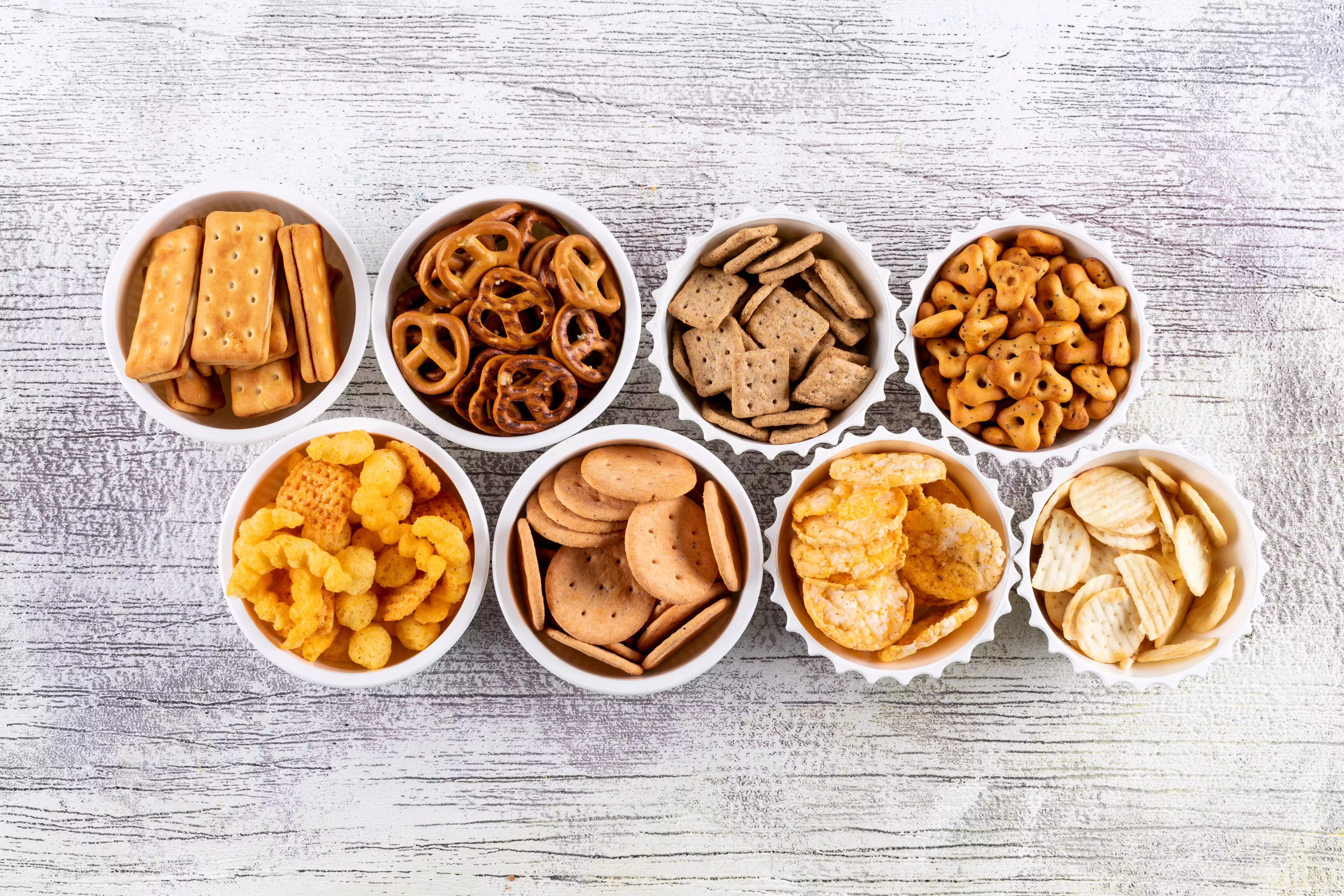
3. Alcohol
A glass of wine may seem relaxing at first, but alcohol can affect your mood more than you might expect. It changes the natural balance of chemicals in your brain. When the effects wear off, you may start to feel more anxious or low than before. Alcohol can also disturb your sleep, and poor sleep is closely linked to higher anxiety levels. If you notice that you feel uneasy or restless after drinking, it may be helpful to cut down or avoid it. Small changes like this can make a big difference in how calm and balanced you feel each day.

4. Processed Fast Food
Burgers, fries, and other fast foods may be quick and tasty, but they often contain unhealthy fats and artificial ingredients that are not good for your body or your mind. These ingredients can affect how you feel, both physically and emotionally. Research shows that people who eat fast food often are more likely to experience stress and anxiety. Choosing simple home-cooked meals, such as grilled chicken with fresh vegetables, can support your mood and help you feel calmer and more in control throughout the day.
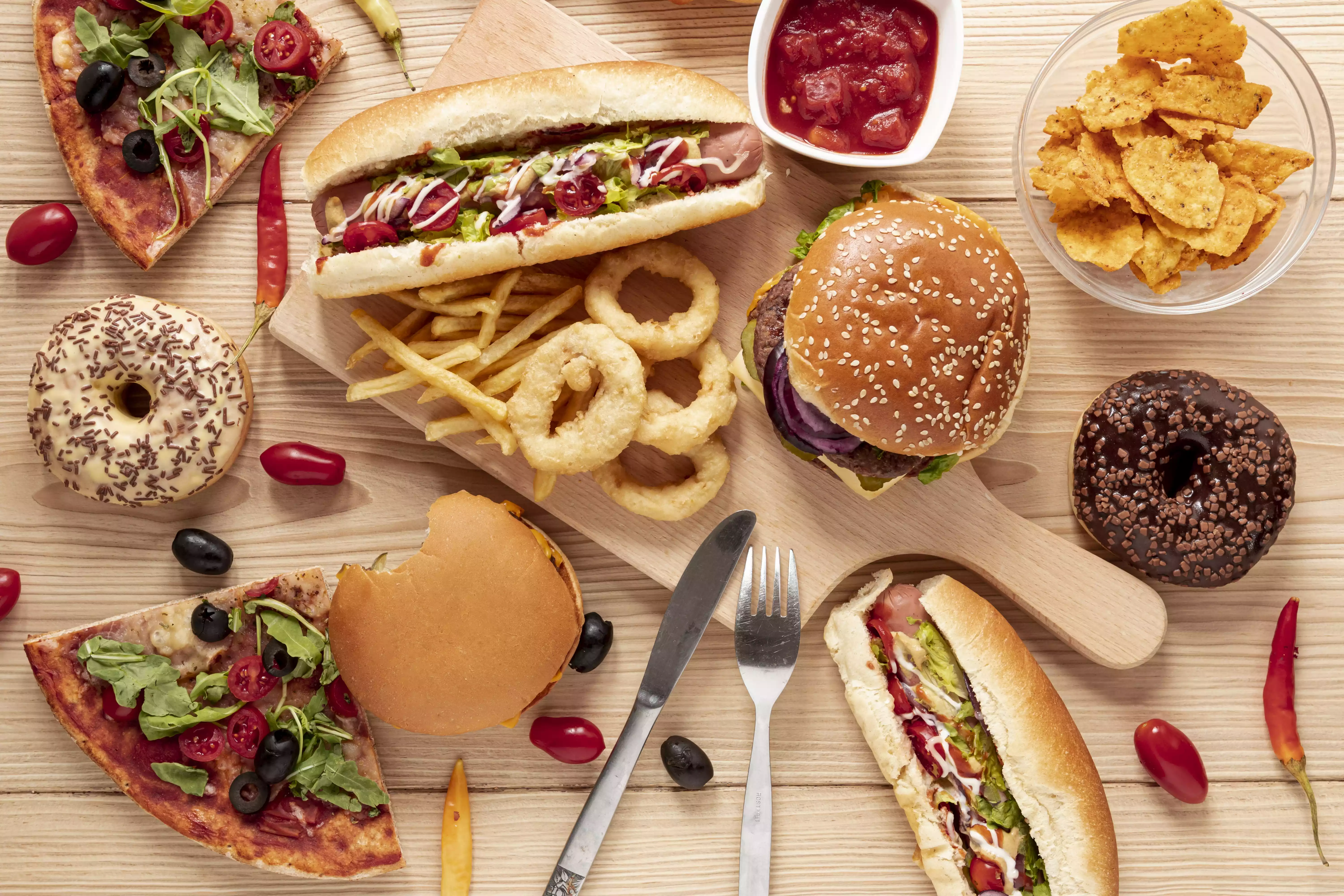
5. Energy Drinks
Energy drinks may seem like a quick solution when you are feeling tired, but they can do more harm than good. Most of them contain high levels of caffeine and sugar, along with other stimulating ingredients like taurine and guarana. These can make your heart race and leave you feeling restless or nervous. If you use energy drinks often, they might be adding to your anxiety without you realizing it. For a healthier and safer boost, try drinking water, stretching, or going for a short walk. These small changes can refresh your body and calm your mind without the crash.

6. White Bread and Refined Carbs
White bread, pasta, and other refined carbohydrates may make you feel full for a short time, but they are digested very quickly. This causes a sudden rise in your blood sugar, followed by a fast drop. These ups and downs can leave you feeling low on energy, irritated, and anxious. Your brain and body prefer steady fuel. Switching to whole grains like brown rice, oats, or whole wheat bread can give you longer-lasting energy and help keep your mood more stable throughout the day. Making this simple change can support both your physical and mental well-being.

7. Artificial Sweeteners
Artificial sweeteners are often found in diet soda, sugar-free gum, and low-calorie snacks. They are used as a replacement for sugar, but not all of them are as harmless as they seem. One common sweetener, aspartame, can interfere with the balance of brain chemicals in some people. This may lead to increased feelings of anxiety, nervousness, or mood swings. While not everyone reacts the same way, if you notice that your mood changes after having these products, it might be a good idea to avoid them. Choosing natural sweeteners like honey or eating naturally sweet foods such as fruits can be a safer option for your mental health.
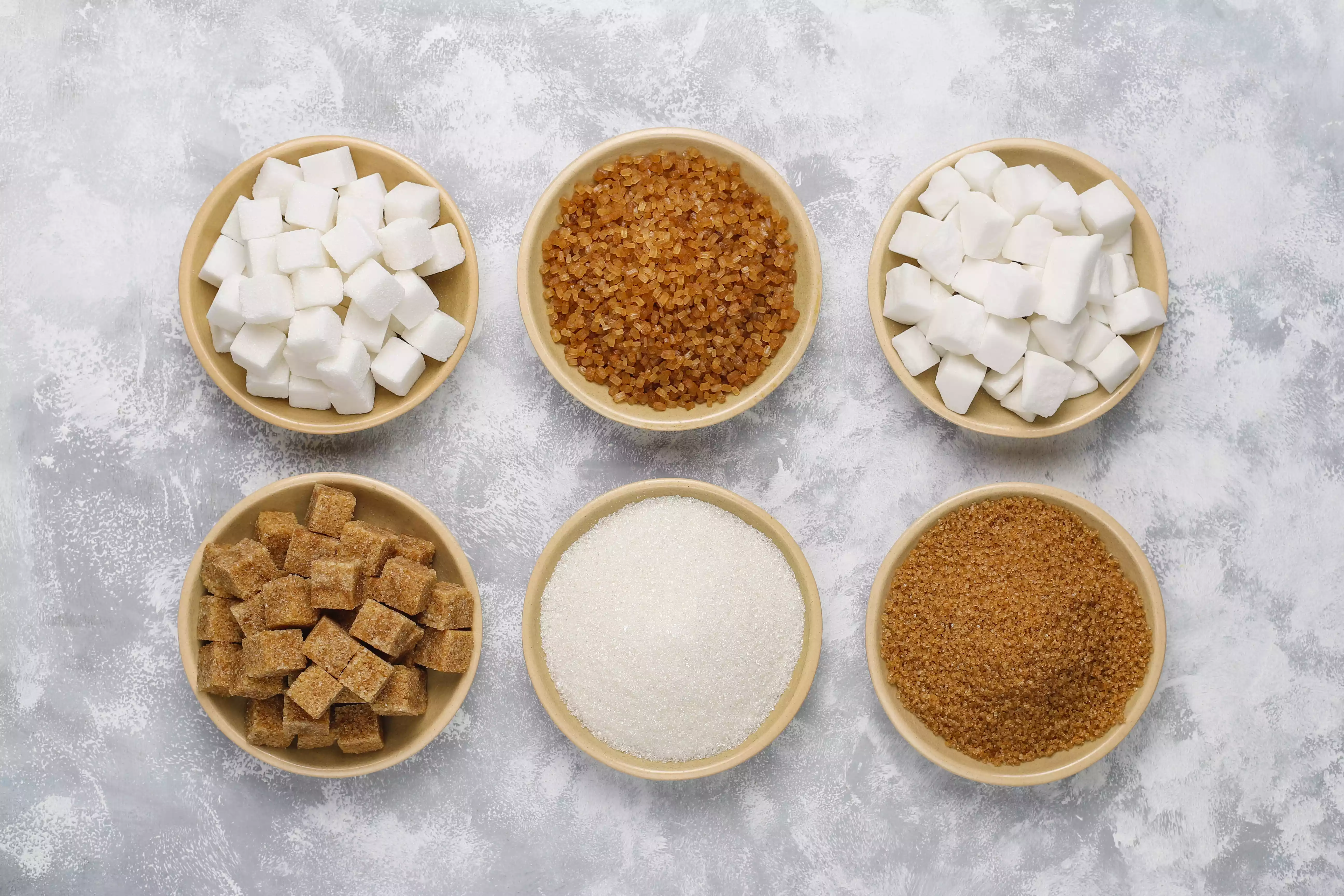
8. Fried Foods
Fried foods like fried chicken, onion rings, and doughnuts are tasty and comforting but they come with hidden downsides. These foods are often cooked in unhealthy oils that are hard for your body to process. When you eat a lot of greasy food your digestion slows down and this can lead to bloating or discomfort. When your stomach feels uneasy it can affect your mood and increase feelings of stress or anxiety. Eating these foods regularly may make you feel heavy, tired and mentally off balance. A better option is to bake or grill your meals using less oil. This way you can still enjoy your favorite dishes while keeping your body and mind feeling lighter and more in control.
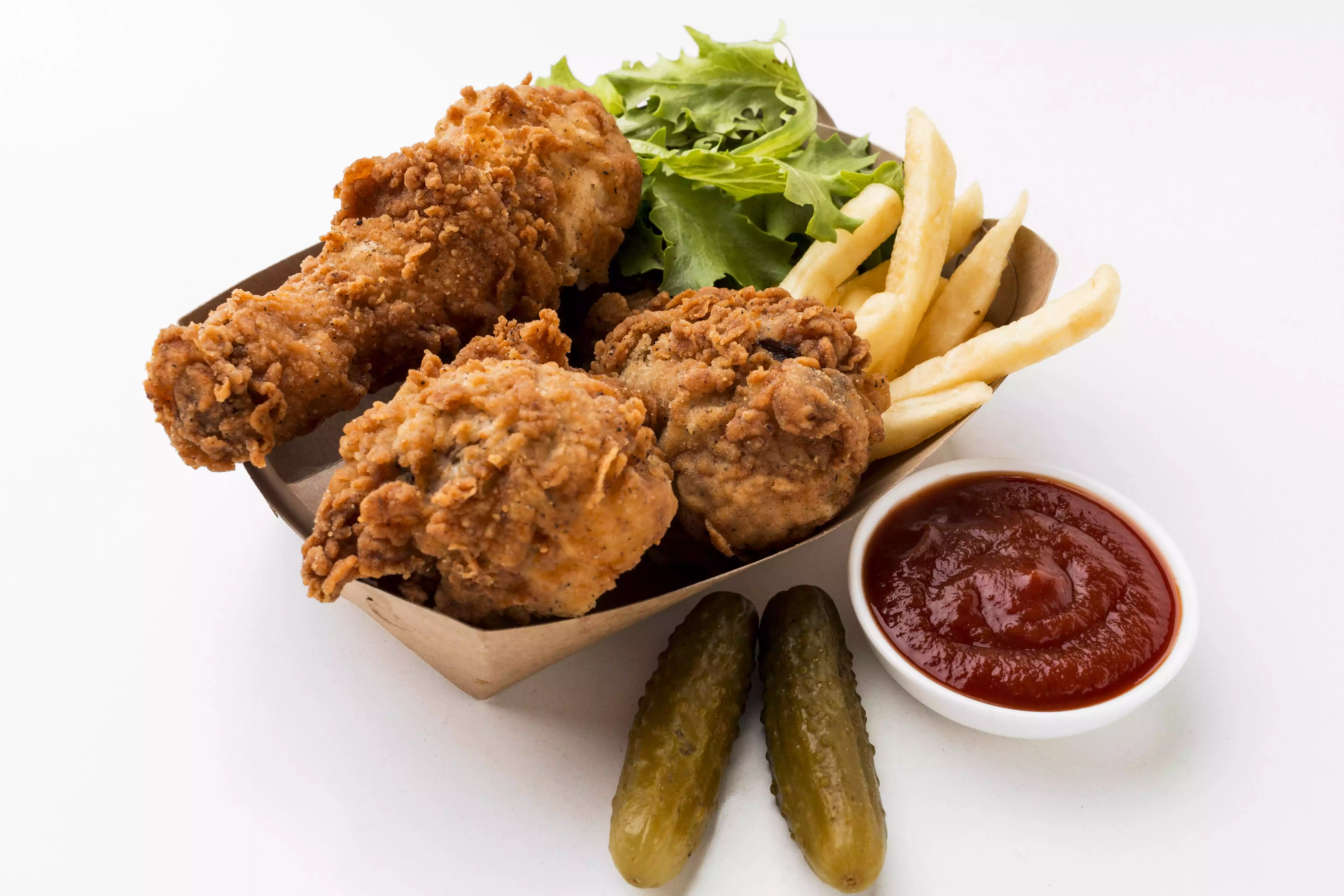
9. High-Sodium Foods
High-sodium foods like chips, canned soups, and frozen meals may be convenient and tasty, but they often contain more salt than your body needs. Eating too much salt can raise your blood pressure, which puts extra pressure on your heart and makes it beat faster. This physical response can make you feel tense or uneasy, and over time, it can increase your chances of feeling anxious or stressed. When your body feels this kind of pressure, your mind often reacts with worry or discomfort. To avoid this, try checking food labels for sodium content and choose options marked as low-salt. Even better, cook at home using fresh ingredients so you can control how much salt you use. Making small changes like these can help you feel more relaxed and balanced throughout the day.
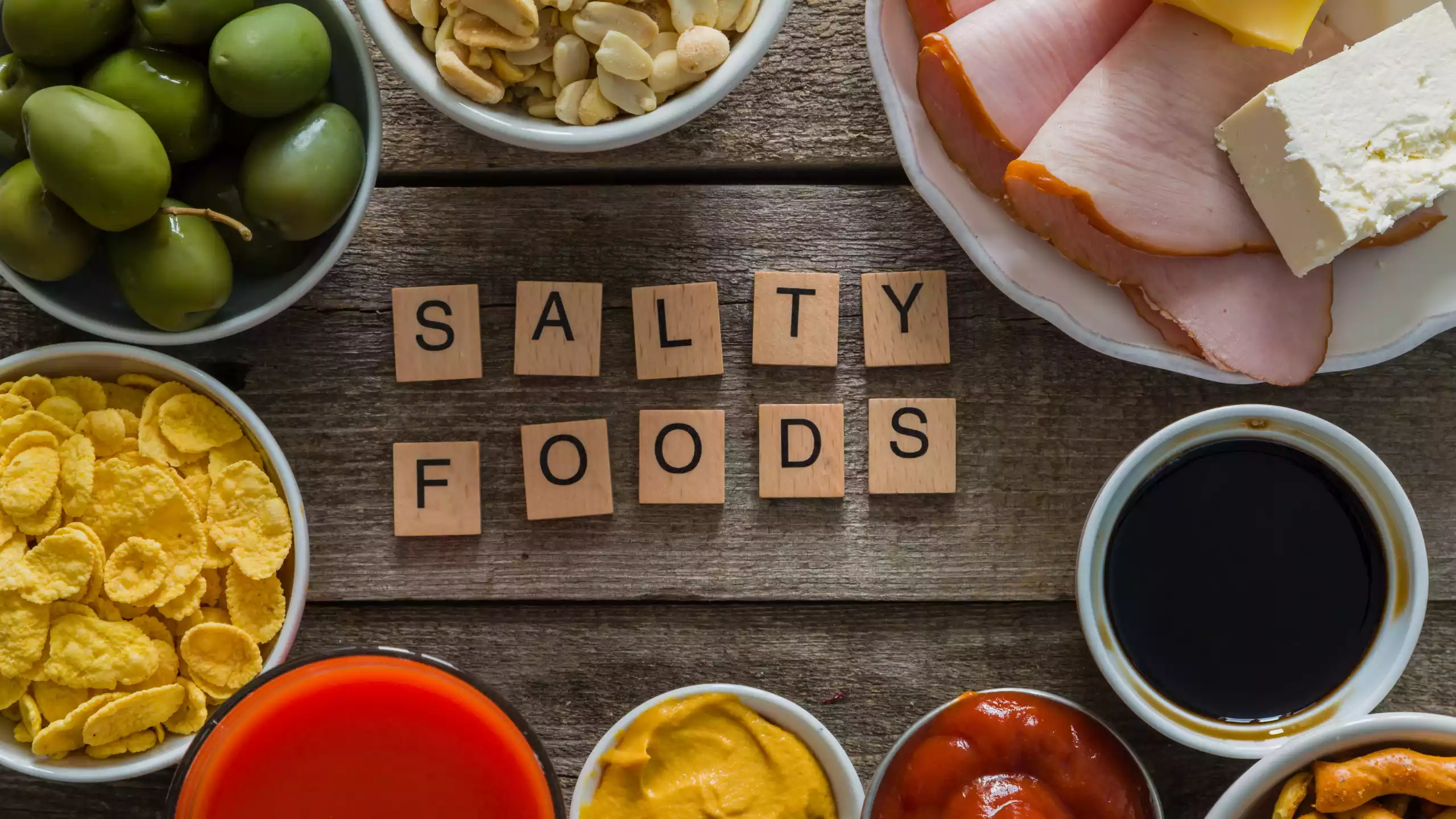
10. Red Meat
Red meat is a good source of nutrients like iron and protein, but eating it too often especially the fatty or processed kinds can be hard on your digestive system. When your stomach feels heavy or uncomfortable, it can affect your mood and even make anxiety feel worse. Some compounds found in red meat, such as certain fats or preservatives, may also influence how your brain chemicals work. This can trigger feelings of uneasiness or stress in some people. You do not need to avoid red meat completely, but try to balance it with lighter meals like vegetables, fish, or legumes. Eating a variety of foods that are easier to digest can help your body feel lighter and your mind feel calmer.

Why Do These Foods Cause Anxiety?
What you eat has a direct impact on how you feel, both physically and mentally. Certain foods can trigger anxiety by affecting your blood sugar, nervous system, and digestion. When your blood sugar rises and falls too quickly, it can leave you feeling jittery and drained. Stimulants like caffeine push your body into high alert, making it harder to stay calm. Processed and unhealthy foods can cause inflammation and digestive issues, which may also contribute to stress and anxiety.
Here are the main reasons:
- Blood Sugar Spikes and Crashes: Foods high in sugar or refined carbs cause rapid spikes in blood sugar, followed by a crash that can leave you feeling jittery, tired, and anxious.
- Overstimulation of the Nervous System: Caffeine, energy drinks, and chocolate contain stimulants that can make your heart race and increase feelings of restlessness.
- Disrupting Brain Chemicals: Artificial sweeteners and processed foods may interfere with neurotransmitters like serotonin and dopamine, which play a role in mood regulation.
- Poor Digestion and Gut Health: Fried and processed foods can cause bloating, inflammation, and digestive issues, which have been linked to increased anxiety.
- Dehydration and Imbalance: High-sodium foods can lead to dehydration and raise blood pressure, making you feel more tense and uneasy.
- Interference with Sleep: Alcohol, caffeine, and sugary foods can disrupt your sleep cycle, and poor sleep is closely linked to anxiety and stress.
What Can You Do Instead?
Making small changes to your diet can help reduce anxiety and keep your mind and body balanced. Here are some better choices:
- Eat More Whole Foods: Fresh fruits, vegetables, whole grains, and lean proteins provide steady energy and support brain health.
- Stay Hydrated: Drink plenty of water to prevent dehydration, which can cause fatigue and increase stress.
- Choose Healthy Fats: Avocados, nuts, seeds, and olive oil help support brain function and mood stability.
- Limit Caffeine and Alcohol: Switch to herbal teas or decaf options and cut back on alcohol to avoid mood swings.
- Add Magnesium-Rich Foods: Nuts, leafy greens, and seeds can help relax muscles and support a calm nervous system.
- Support Your Gut: Probiotic foods like yogurt, kefir, and fermented vegetables promote gut health, which is linked to better mood regulation.
- Balance Blood Sugar: Eat small, regular meals with protein and fiber to keep energy and mood stable throughout the day.
How to Spot Your Triggers
Understanding which foods affect your anxiety can help you take control of your diet and mood. Here’s how you can identify your triggers:
- Keep a Food Journal: Write down what you eat and how you feel afterward. Over time, you might notice patterns between certain foods and increased anxiety.
- Watch for Immediate Reactions: Some foods, like caffeine or sugar, can trigger anxiety within minutes to hours. Pay attention to how your body responds.
- Notice Delayed Effects: Some foods may not cause anxiety right away but can lead to poor sleep or energy crashes, making you feel anxious the next day.
- Check Your Digestion: Bloating, stomach pain, or discomfort after eating certain foods might signal they are affecting your gut, which can influence your mood.
- Observe Sleep Patterns: If a certain food or drink disrupts your sleep, it could be contributing to anxiety the next day.
- Try an Elimination Diet: Remove suspected trigger foods for a few weeks and slowly reintroduce them to see if they impact your anxiety levels.
- Listen to Your Body: If you feel jittery, restless, or on edge after eating something, it might be a sign to cut back or find a healthier alternative.
Final Thoughts
Anxiety is already hard to deal with, and the wrong foods can make it worse. These 10 foods are not always bad, but if you eat them too often, they might be adding to your stress. You do not need to cut everything out, just paying a little attention to your diet can make a big difference. Next time you feel anxious, think about what you have been eating. A small change here and there might help you feel calmer and more in control.
Stay connected with news and updates!
Join our mailing list to receive the latest news and updates from our team.
We hate SPAM. We will never sell your information, for any reason.



